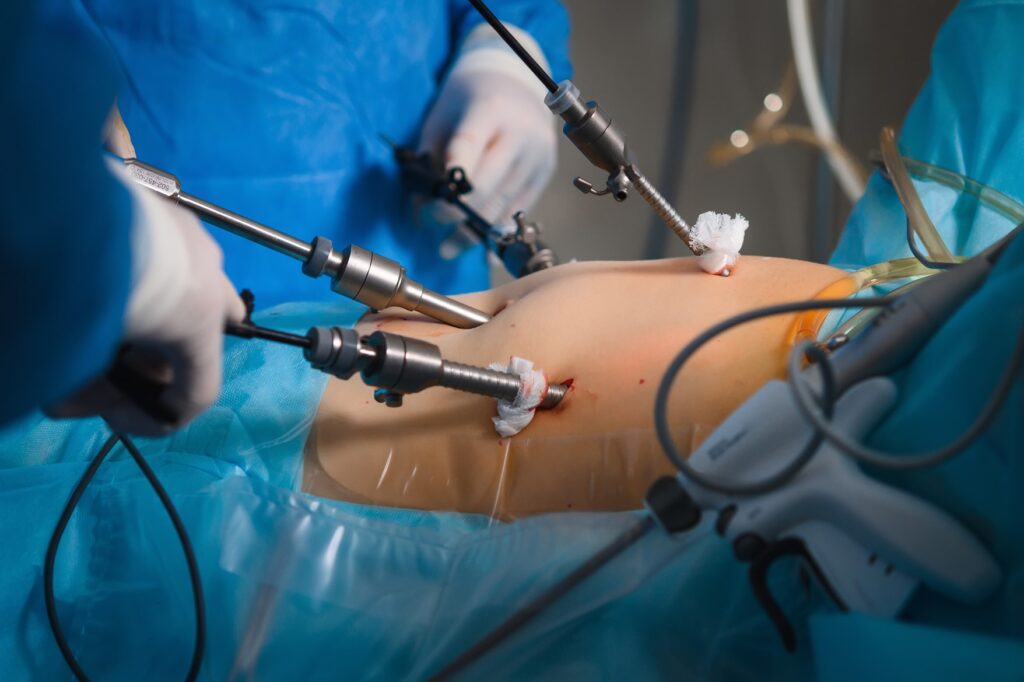A minimally invasive procedure to remove a woman’s uterus. This surgery is performed through very small incisions using a thin, lighted tube with a camera called a laparoscope.
The laparoscope is inserted through the belly button and a few other incisions in the lower abdomen to remove the uterus.
Why Would a Laparoscopic Hysterectomy Be Performed?
- Uterine Fibroids
- Endometriosis
- Uterine Prolapse
- Chronic Pelvic Pain
- Abnormal Uterine Bleeding
- Certain Types of Cancer
This procedure is usually recommended when other treatments are not successful.
Laparoscopic Hysterectomy: How to Prepare?
- Do not eat or drink anything after midnight on the day of surgery
- Stop taking aspirin 7 to 10 days before the surgery
- Stop taking NSAIDs and certain herbal supplements 3 to 7 days before the surgery
- Shower the night before the surgery to avoid infection
- You may be given certain medications on the day of surgery
- An antibiotic will be given through an IV to help ward off any bacterial infection
After Laparoscopic Hysterectomy: What to Expect?
- Pain in your shoulders or ribs from the gas put into your abdomen
- A catheter for about 24 hours to help drain your bladder
- Pain medications to reduce pain and discomfort
- Walk as soon as possible after surgery to prevent blood clots in your legs
- Light vaginal bleeding for several days and can use sanitary pads during this period
- Refrain from intercourse for six weeks
Post Operative Care for Laparoscopic Hysterectomy
- Rest for the first 24 hours following surgery and gradually increase activity over the next few days
- Avoid any strenuous activities for the first 2 weeks
- Take pain medications as directed
- Eat a healthy diet and drink plenty of fluids
- Maintain good hygiene practices, including daily showers and changing pads or other dressings
- Keep the incisions clean and dry
- Avoid Sexual Activity for at least 6 weeks
- Follow all instructions provided by your doctor to ensure a safe and successful recovery
- Report any concerning symptoms such as fever, chills, persistent pain, or bleeding
Benefits of Laparoscopic Hysterectomy
- Less pain
- Shorter recovery time
- Less scarring
- Reduced risk of complications
- Lower risk of damage to other organs
After Laparoscopic Hysterectomy: When To Call Your Doctor?
Call your doctor right away if you experience the following:
- Heavy bleeding
- Persistent fever or infections
- Severe abdominal pain
- Foul-smelling vaginal discharge
- Difficulty urinating
- Redness, swelling, or tenderness at the incision sites
- Nausea, vomiting, or other signs of dehydration
- Pain or discomfort that does not improve with medications
